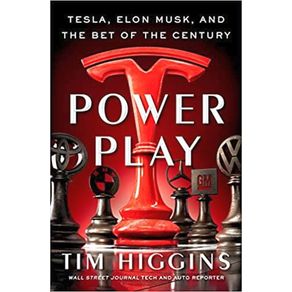Elon Musk is among the most controversial titans of Silicon Valley. To some he's a genius and a visionary; to others he's a mercurial huckster. Billions of dollars have been gained and lost on his tweets; his personal exploits are the stuff of tabloids. But for all his outrageous talk of mind-uploading and space travel, his most audacious vision is the one closest to the ground: the electric car.
When Tesla was founded in the 2000s, electric cars were novelties, trotted out and thrown on the scrap heap by carmakers for more than a century. But where most onlookers saw only failure, a small band of Silicon Valley engineers and entrepreneurs saw opportunity. The gas-guzzling car was in need of disruption. They pitted themselves against the biggest, fiercest business rivals in the world, setting out to make a car that was quicker, sexier, smoother, cleaner than the competition.
But as the saying goes, to make a small fortune in cars, start with a big fortune. Tesla would undergo a hellish fifteen years, beset by rivals, pressured by investors, hobbled by whistleblowers, buoyed by its loyal supporters. Musk himself would often prove Tesla's worst enemy--his antics more than once took the company he had initially funded largely with his own money to the brink of collapse. Was he an underdog, an antihero, a conman, or some combination of the three?
Wall Street Journal tech and auto reporter Tim Higgins had a front-row seat for the drama: the pileups, wrestling for control, meltdowns, and the unlikeliest outcome of all, success. A story of power, recklessness, struggle, and triumph, Power Play is an exhilarating look at how a team of eccentrics and innovators beat the odds--and changed the future.

